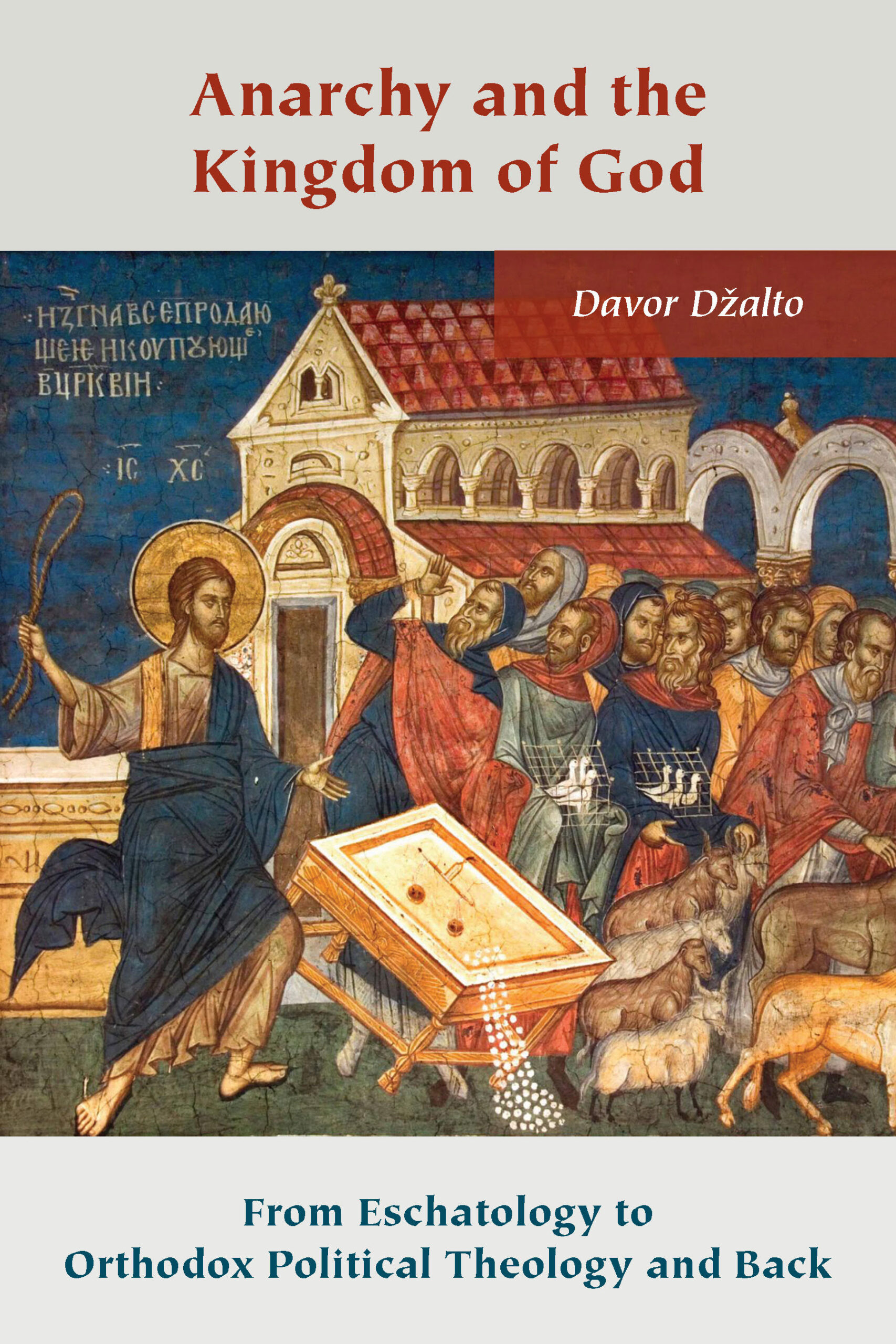Anarchy and the Kingdom of God:
From Eschatology to Orthodox Political Theology and Back
Summary
Anarchy and the Kingdom of God presents the reader with a unique critique of both traditional and contemporary political theologies that have rationalized and justified power structures and oppression of various kinds. The book advances an “anarchist” theological approach to the socio-political sphere, which is based on some of the basic presuppositions of Orthodox Christian anthropology and metaphysics.
In Anarchy and the Kingdom of God, Davor Džalto reclaims the concept of “anarchism” both as a political philosophy and a way of thinking of the socio-political sphere from a theological perspective. Developing a coherent critique of power structures and oppression, as one of the most prominent forces in human history, Džalto advances human freedom as a foundational theological principle. Building on insights and arguments ranging from the New Testament texts and Church Fathers, to modern religious and political thinkers such as Nikolai Berdyaev, Jacques Ellul or Sheldon Wolin, Džalto contextualizes the political realm as primarily the realm of power, which is rooted in a specific logic of being. This logic, based on self-affirmation and the power dynamics of domination/submission, is confronted here with a different (eschatological) mode of existence, based on freedom and love.
Developing an “anarchist” political theology, the book offers a method for dealing with a variety of contemporary social and political issues. In the time of renewed exploitations of religious ideas for the purposes of coercive political projects, both in the East and in the West, this approach seems particularly relevant. With a genuine theological approach to the issues of human freedom and power dynamics, the book enables a fresh reexamination of the problem of democracy and justice in the age of global (neoliberal) capitalism.
Reviews
“Perhaps the best book on Christian anarchism since Jacques Ellul, Anarchy and the Kingdom of God is a timely and valuable addition to resurgent interest in political theology across various disciplines. Learned and well-written, it brings neglected sources from the Orthodox Christian tradition into this current renaissance and makes clear their relevance for contemporary economic and political debates in contexts ranging from the United States to postcommunist Europe and Russia.” Eric Gregory, Princeton University
·
“This is undoubtedly an excellent monograph and a very welcome one.” E. Brown Dewhurst https://www.tandfonline.com/doi/abs/10.1080/09637494.2022.2109850?journalCode=crss20
·
“Dzalto’s scholarship is a rich contribution to the burgeoning literature on political theology, and a particularly welcome perspective in the field of Orthodox political theology.” Graham McGeoch, Reflexus, https://revista.fuv.edu.br/index.php/reflexus/article/view/2520/2272
·
“His unique voice balances nicely the radical critique of eschatological anarchism with a realistic acknowledgment that refusal to engage the imperfect conditions of life in the world is not an option for those who love their neighbors. Džalto’s volume challenges readers to navigate the contradictions inherent in the prophetic task of acting and speaking faithfully in a world that so easily confuses the sacred with the profane. Its powerful argument contributes greatly to contemporary discourse in Orthodox social thought.” Philip LeMasters, McMurry University https://www.journals.uchicago.edu/doi/abs/10.1086/724849
·
“With his feet planted firmly in the Orthodox theological tradition, but with his arms outstretched across social and political theory and the entire Christian experience, Davor Džalto provides a gift to the Christian movement (and the world it serves) now and into the future. Anarchy and the Kingdom of God delivers on its title’s promise of a thoughtful and nuanced discussion of Christianity and power, ethics and justice, and the eschatological fulfillment promised to all of creation. This book delivers so much more than that, however – it is at once a useful primer on fundamental Christian convictions and aspirations, a generous and fair-minded dialogue with positions the author does not share, and an object lesson on how Orthodox political theology draws on the best of its tradition to break open the dreary categories of contemporary ‘religion and politics’. If given the chance, Anarchy and the Kingdom of God can help open doors to God’s intended future that have hitherto been closed for far too long.” Prof. Michael L. Budde, Ph.D., DePaul University
·



